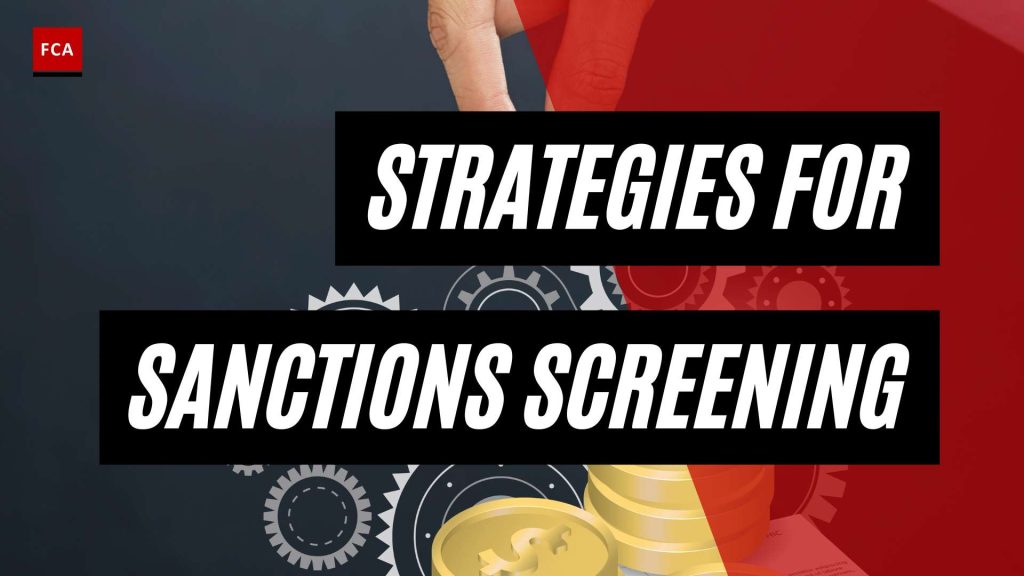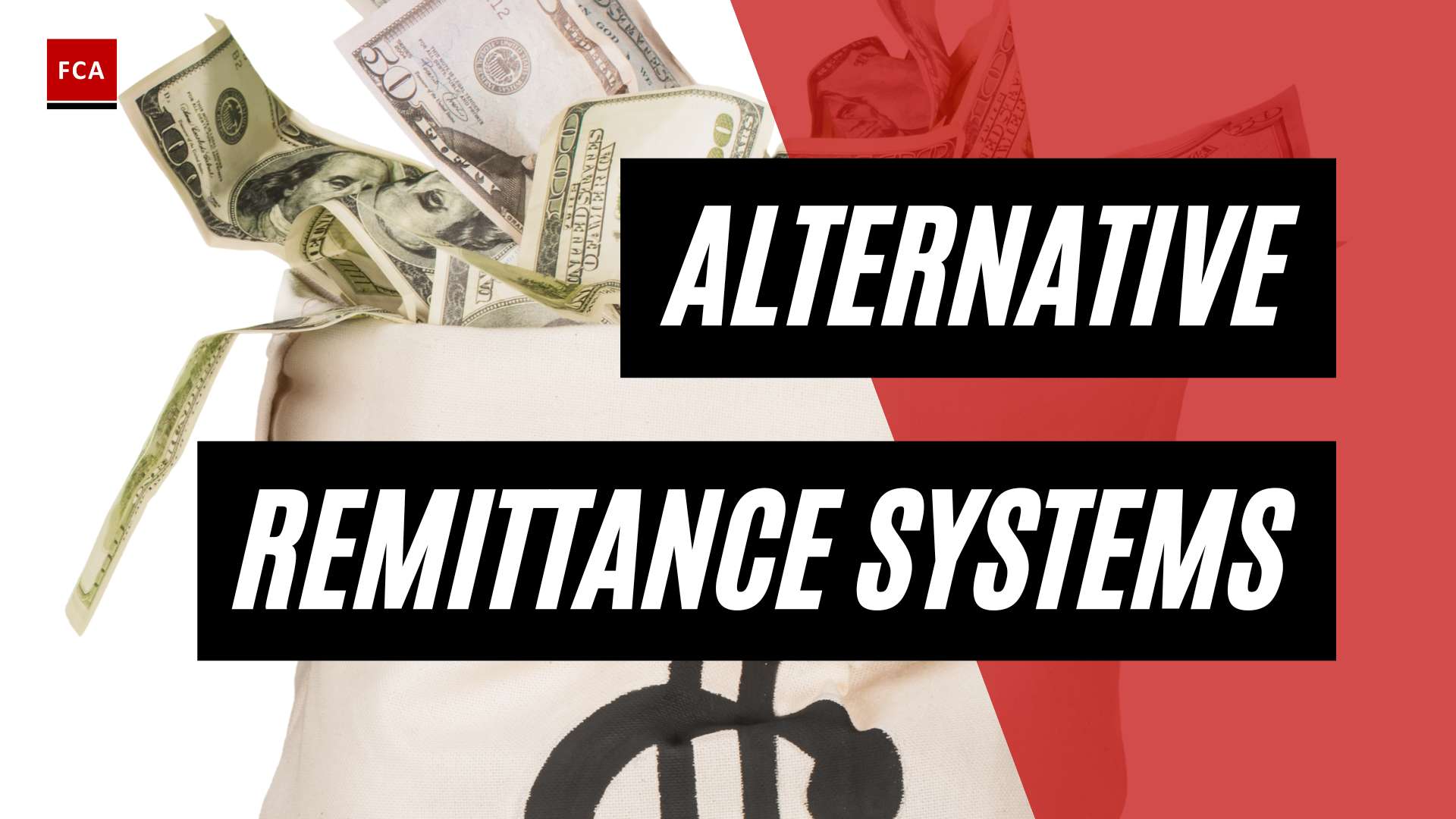Understanding Sanctions Screening
In the realm of compliance and risk management, sanctions screening plays a crucial role in preventing financial crime and ensuring legal compliance. This section will delve into what sanctions screening entails and highlight its importance.
What is Sanctions Screening?
Sanctions screening involves cross-referencing individuals and companies against watchlists issued by various governments and international bodies. The purpose of this screening is to identify and flag individuals, entities, or vessels that are subject to sanctions, restrictions, or embargoes. By conducting sanctions screening, businesses can mitigate the risk of inadvertently engaging with sanctioned parties.
The watchlists used in sanctions screening include government and international lists that provide information on individuals, entities, and vessels associated with activities such as terrorism, money laundering, proliferation of weapons of mass destruction, and human rights abuses. By screening against these lists, businesses can identify potential risks and take appropriate measures to prevent illicit activities.
Importance of Sanctions Screening
Sanctions screening is of paramount importance for businesses to ensure compliance with legal requirements, prevent financial crime, and avoid penalties that may arise from engaging with sanctioned entities. Non-compliance with sanctions regulations can lead to severe consequences, including financial penalties, restrictions on trading activities, loss of access to crucial markets, and reputational damage. It is worth noting that in 2022, there was a significant surge in money laundering fines, with violations of sanctions laws comprising a substantial portion of these fines.
Effective sanctions screening enables businesses to:
- Mitigate the risk of inadvertently dealing with individuals or entities subject to sanctions.
- Uphold legal obligations and maintain compliance with relevant sanctions laws.
- Safeguard the integrity of financial systems and prevent money laundering, terrorism financing, and other illicit activities.
- Protect their reputation by demonstrating a commitment to ethical business practices and responsible financial conduct.
By implementing robust sanctions screening processes and technologies, businesses can proactively identify and manage risks associated with sanctioned entities. This helps ensure a secure and compliant operating environment, contributing to the overall stability of the financial system.
In the next section, we will explore the sanctions screening process, including cross-referencing against watchlists and the key government and international lists used in this process.
Sanctions Screening Process
To ensure compliance with legal requirements, prevent financial crime, and avoid penalties, businesses employ the process of sanctions screening. This process involves cross-referencing individuals and companies against watchlists issued by various governments and international bodies. By conducting sanctions screening, organizations aim to mitigate the risk of inadvertently engaging with sanctioned entities, which can lead to severe consequences such as fines, reputational damage, and legal actions.
Cross-Referencing Against Watchlists
In the sanctions screening process, individuals and companies are cross-referenced against government-issued watchlists to identify any matches. These watchlists include those issued by the United Nations, the European Union, the US Department of the Treasury, and other regulatory bodies worldwide. By comparing the names and details of individuals and entities against these watchlists, businesses can identify if they are dealing with sanctioned parties.
The watchlists consist of individuals, organizations, and countries that are subject to sanctions due to various reasons, such as involvement in terrorism, human rights violations, or other illicit activities. The aim of cross-referencing against watchlists is to identify and prevent transactions or partnerships with these sanctioned entities.
Key Government and International Lists
When conducting sanctions screening, organizations typically refer to a range of government and international lists to ensure comprehensive coverage. Some of the key lists that are commonly used include:
- Office of Foreign Assets Control (OFAC) List: This list is maintained by the US Department of the Treasury and includes individuals, organizations, and countries subject to economic and trade sanctions.
- United Nations (UN) Sanctions List: The UN maintains various sanctions lists targeting individuals, groups, and countries involved in activities such as terrorism, proliferation of weapons, or human rights violations.
- European Union (EU) Sanctions List: The EU maintains its own sanctions list, targeting individuals, organizations, and countries involved in activities that threaten peace, security, or human rights.
- UK Sanctions List: The UK maintains its own sanctions list, which is separate from the EU list since its exit from the European Union.
- Other National and Regional Lists: In addition to the above, various countries and regions maintain their own sanctions lists to enforce compliance with local regulations.
By regularly screening against these key government and international lists, businesses can ensure that they do not engage with sanctioned entities, reducing the risk of financial penalties and reputational damage.
It’s important to note that the process of sanctions screening is not limited to financial institutions alone. It applies to businesses across various industries to prevent illicit activities, comply with regulations, and protect themselves from legal and financial consequences. To explore the specific challenges and considerations for sanctions screening in industries such as financial institutions and the oil & gas industry, refer to the relevant sections in this article.
Continuously improving and optimizing sanctions screening systems is crucial for businesses to stay compliant and safeguard their operations. This includes addressing challenges related to complex corporate structures, name matching, and alternative spellings. By adopting advanced technologies and integrating automated solutions, organizations can streamline their sanctions screening processes, reduce manual errors, and enhance their overall compliance efforts.
Benefits of Automating Sanctions Screening
Automating sanctions screening processes using technology and software solutions can bring numerous benefits, helping organizations in their compliance efforts and reducing the risk of manual errors. Here, we explore two key advantages of automating sanctions screening: streamlining compliance efforts and reducing manual errors.
Streamlining Compliance Efforts
Implementing automated sanctions screening tools and software can significantly streamline compliance efforts for businesses, particularly those with high transaction volumes or complex ownership structures. These technological solutions utilize advanced algorithms and analytics to efficiently scan vast amounts of data, instantly flagging any potential matches for further review (Okta).
By automating the screening process, organizations can ensure more comprehensive coverage and enhance the speed and accuracy of identifying potential matches against watchlists. This helps businesses stay compliant with regulatory requirements and reduces the burden on compliance teams by eliminating the need for manual screening of each individual or transaction.
Reducing Manual Errors
Manual errors can have serious consequences in sanctions screening, potentially leading to compliance breaches and associated penalties. Automating sanctions screening greatly reduces the risk of manual errors by eliminating human oversight and reliance on manual processes.
Legacy screening systems, which are slower, inflexible, and require more manual intervention, contribute to high levels of false positives. In these systems, the average rate of false positives can reach up to 5-8%. This results in a significant number of entities requiring manual review, increasing the workload and costs associated with compliance.
Automated screening tools use advanced technology to analyze data and apply predefined rules, significantly reducing false positives and false negatives. The accuracy and efficiency of these tools help organizations focus on legitimate matches, saving time and resources while ensuring compliance with sanctions regulations.
By embracing automation in sanctions screening, organizations can streamline their compliance efforts, reduce the risk of manual errors, and enhance the overall efficiency and effectiveness of their screening processes. It is vital for businesses to invest in modern screening systems that leverage technology to stay ahead in the ever-evolving landscape of sanctions and regulatory requirements.
Consequences of Non-Compliance
Complying with sanctions screening regulations is of utmost importance for organizations. Failure to comply with these regulations can lead to severe consequences, including financial penalties and fines, as well as reputational damage.
Financial Penalties and Fines
Non-compliance with sanctions screening regulations can result in heavy financial penalties and fines. Regulatory authorities, such as financial intelligence units, are empowered to enforce these penalties in order to deter and punish violations. For instance, in 2014, BNP Paribas was fined a record $8.9 billion for violating U.S. sanctions (Financial Crime Academy).
The fines imposed on organizations for sanctions screening violations can be substantial, potentially leading to significant financial losses. These losses may include not only the fines themselves but also legal fees and the potential loss of business opportunities. It is essential for organizations to allocate appropriate resources to ensure compliance and avoid the financial implications of non-compliance.
Reputational Damage
In addition to financial penalties, non-compliance with sanctions screening regulations can have a detrimental impact on an organization’s reputation. Public perception plays a significant role in the success of any business, and a tarnished reputation can lead to a loss of trust and credibility.
Reputational damage resulting from non-compliance can impact an organization’s relationships with various stakeholders, including financial institutions, customers, and business partners. It can lead to a loss of confidence in the organization’s ability to operate ethically and in accordance with regulatory requirements.
Notably, in 2017, Deutsche Bank was fined $630 million for failing to maintain an adequate sanctions screening program, which put the bank at risk of processing transactions that violated U.S. sanctions (Financial Crime Academy). Such instances highlight the potential reputational damage that can occur when an organization fails to meet the necessary compliance standards.
By prioritizing sanctions screening and maintaining robust compliance measures, organizations can mitigate the risk of financial penalties, fines, and reputational damage. Implementing effective AML policies and procedures, enhancing customer identification programs, and utilizing advanced transaction monitoring systems are crucial steps towards maintaining compliance and safeguarding the reputation of the organization.
Sanctions Screening in Specific Industries
Sanctions screening is a critical process for various industries to ensure compliance with regulations and mitigate the risk of engaging in prohibited activities. Two industries that heavily rely on effective sanctions screening are financial institutions and the oil & gas industry.
Financial Institutions
For financial institutions, thorough sanctions screening is essential to comply with regulations set by the Office of Foreign Assets Control (OFAC) and other regulatory bodies. Financial institutions must cross-reference customer information against government and international watchlists to identify individuals or entities subject to sanctions (Okta).
The consequences of non-compliance with sanctions screening regulations can be severe for financial institutions. Violations can result in heavy fines and penalties, as demonstrated by the record $8.9 billion fine imposed on BNP Paribas in 2014 for violating U.S. sanctions (Financial Crime Academy). Non-compliance can also lead to investigations, legal actions, and monitoring by regulatory authorities, which can significantly impact the operation and profitability of banks and financial institutions (Financial Crime Academy).
To remain compliant and mitigate risks, financial institutions must implement comprehensive due diligence practices, including effective sanctions screening. This ensures that they understand the sanctions risks associated with their business partners and helps prevent the inadvertent facilitation of illicit activities (Pole Star Global). Robust sanctions screening processes and technologies, including advanced screening software and transaction monitoring systems, are vital for financial institutions to identify and address potential risks (Okta).
Oil & Gas Industry
The oil & gas industry also encounters challenges related to sanctions screening. Companies operating in this sector must ensure compliance with international sanctions programs that restrict business dealings with specific countries, individuals, or entities. These restrictions may target countries involved in trade-based money laundering, terrorism financing, or other illicit activities.
Sanctions screening allows oil & gas companies to verify the identities of their business partners and avoid engaging in transactions with sanctioned entities. By cross-referencing against government and international lists, companies can identify potential risks and prevent unintended violations of sanctions regulations. Implementing effective sanctions screening processes is crucial for the oil & gas industry to maintain regulatory compliance and protect their reputation.
To address the challenges of sanctions screening, companies in the oil & gas industry should establish robust internal controls, including comprehensive due diligence procedures. This includes verifying the identities of individuals and entities involved in transactions and staying informed about the latest updates and changes in sanctions programs. By implementing these measures, companies can minimize the risk of non-compliance and ensure the integrity of their business operations.
In summary, both financial institutions and the oil & gas industry heavily rely on sanctions screening to comply with regulations and mitigate risks associated with prohibited activities. By implementing effective sanctions screening processes and leveraging advanced technologies, these industries can safeguard their operations, maintain compliance with sanctions regulations, and protect their reputation in the global market.
Challenges in Sanctions Screening
When it comes to sanctions screening, there are various challenges that organizations face in order to effectively identify and mitigate risks. Two significant challenges in the sanctions screening process are complex corporate structures and name matching with alternative spellings.
Complex Corporate Structures
Sanctions screening against targeted lists presents substantial challenges due to the presence of complex corporate structures that can mask sanctioned parties. These structures often involve multiple layers of ownership, making it difficult to identify the ultimate beneficial owners (Global Investigations Review). Determining the ownership relationships and identifying the entities that should be screened can be a complex and time-consuming task.
To address this challenge, organizations need to have robust systems and processes in place to capture and analyze ownership information. It is crucial to conduct thorough due diligence and utilize advanced technologies to uncover hidden ownership structures. Implementing enhanced know-your-customer (KYC) procedures and conducting ongoing monitoring can help organizations navigate the complexities of corporate structures.
Name Matching and Alternative Spellings
Accurate name matching is another critical challenge in sanctions screening. Names can have different variations, alternative spellings, or transliterations, making it challenging to identify matches against watchlists. Additionally, individuals and entities may intentionally change their names or use aliases to evade detection.
To overcome this challenge, organizations need advanced screening systems that can handle name variations and identify potential matches accurately. These systems should incorporate sophisticated algorithms and artificial intelligence to enhance the matching process. Utilizing fuzzy matching techniques and considering phonetic similarities can help improve the accuracy of name matching.
It is also essential to stay updated on the latest sanctions lists and regularly review and update internal databases to include alternative spellings and aliases. Implementing data quality controls and conducting periodic data cleansing exercises can help ensure that the screening process is effective and reliable.
By addressing the challenges of complex corporate structures and name matching, organizations can enhance their sanctions screening processes and strengthen their compliance efforts. Investing in advanced screening systems, leveraging technology, and staying vigilant with data updates are essential steps in mitigating risks associated with sanctions non-compliance.
To learn more about the challenges and best practices in sanctions screening, continue reading our article on sanctions screening.
Improving Sanctions Screening Systems
To enhance the effectiveness of sanctions screening processes, organizations need to address the shortcomings of legacy screening systems and tackle issues related to false positives and false negatives.
Legacy Screening Systems
Legacy screening systems, which are outdated in terms of technology, standards, and processes, pose significant challenges in sanctions screening. These systems often contribute to high levels of false positives, where entities are flagged as potentially violating sanctions even though they are not involved in any illicit activities. On average, false positive rates in legacy systems can reach up to 5-8%, resulting in a significant number of entities requiring manual review. For every million entities screened, up to 400,000 hits may need manual review, leading to substantial costs and resource allocation.
The inefficiency of legacy screening systems is evident in the unnecessarily high levels of false positives. Organizations face the burden of reviewing a large volume of alerts, increasing the risk of missing true matches and diverting valuable resources away from genuine risks. The cost of reviewing false positives per million customers or transactions screened can exceed £200,000, adding financial strain to compliance efforts (Napier).
False Positives and False Negatives
False positives are a significant challenge in sanctions screening. These occur when screening systems flag entities or transactions as potentially violating sanctions when, in fact, they are legitimate. The high rate of false positives hampers the efficiency of compliance efforts, as it requires manual review and investigation of entities that do not pose a genuine risk. This not only consumes valuable time and resources but also increases the risk of missing true matches and potential sanctions violations.
On the other hand, false negatives are equally concerning. False negatives occur when screening systems fail to identify entities or transactions that do pose a risk of sanctions violations. Failing to detect true matches can result in severe consequences, including reputational damage and potential financial penalties. In the United States, the average sanctions breach fine between 2018 and 2020 amounted to $20.4 million, highlighting the significance of accurate and robust screening systems (Napier).
To mitigate the risks associated with false positives and false negatives, organizations should consider upgrading their sanctions screening systems to modern and advanced solutions. These solutions leverage advanced technologies, such as artificial intelligence and machine learning, to improve accuracy and reduce the occurrence of false positives and false negatives. By implementing more sophisticated screening systems, organizations can enhance compliance efforts, reduce manual errors, and ensure a more effective sanctions screening process.








